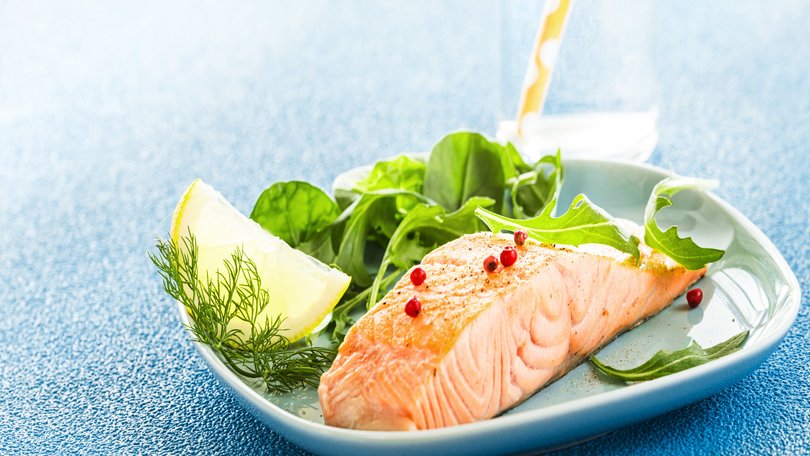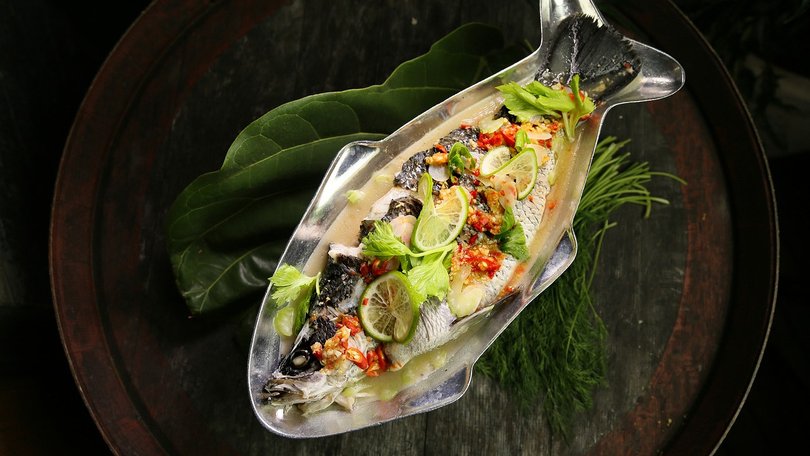Nutritionist Sarah Di Lorenzo: Affordable seafood high in protein and nutrients every Australian should eat
Nutritionist Sarah Di Lorenzo: Think seafood’s too pricey or complicated? The best options are already in your pantry.

Seafood — apparently we don’t eat enough. Omega-3: what are the best types of fish that are affordable, what are the benefits, and what should we avoid (for example, battered fish)?
I think it would be fair to say that most of us know fish, especially the fatty type, is good for our health. But despite all the strong evidence for its benefits, research consistently shows that Australians are not eating enough seafood — particularly fish high in omega-3 fatty acids. Research shows around 20 per cent of people are eating enough fish, and the current guidelines are to have two seafood meals per week.
Omega-3 fatty acids are important for our health. They play a role in building cell membranes, cognitive function, lowering inflammation, regulating blood pressure, skin health and mood. Research shows that people who eat fish regularly can lower their risk of heart disease, stroke, dementia, and depression, as well as have better pregnancy outcomes and healthy brain development in children.
Sign up to The Nightly's newsletters.
Get the first look at the digital newspaper, curated daily stories and breaking headlines delivered to your inbox.
By continuing you agree to our Terms and Privacy Policy.The problem, outside of taste, could be that many people think fish is too expensive. But there are so many other options that are good for us. You don’t need to be eating the expensive salmon fillets — you can choose canned and frozen fish.
I personally think canned mackerel, salmon, tuna and sardines are fantastic and such an excellent source of omega-3. Something else about the canned options is they are all portion controlled, so no waste, and are something you can have on hand all the time.
Plus there are so many other health benefits. For example, sardines are high in calcium, as is canned salmon, but you need to be eating the little bones as well. Mackerel is a great source of omega-3 and contains iodine, selenium and B vitamins.
All fish is an excellent source of protein at around 25g of protein per 100g, and there are other really affordable cuts of fresh fish like barramundi, flathead and snapper that are delicious, easily digested and nutritious.

I think the humble prawn is often overlooked as an excellent choice. Prawns are a lean source of protein and 100g is about 115 calories for the calorie counters.
Prawns are a good source of B vitamins, iron, zinc, selenium and omega-3 to support muscle growth, bone health, immunity and energy while being really low in fat. It is a myth that prawns are high in cholesterol and have adverse effects on heart health; rather, prawns are a healthy choice.
The benefits of omega-3 include reducing inflammation, lowering blood pressure, lowering the risk of dementia and depression, and reducing rates of cardiovascular disease. Fish is low in saturated fat, has high-quality complete protein and is an excellent choice for long-term health.
When it comes to how much you should really be eating, I would say an absolute minimum of two serves a week, ideally four serves, and definitely including a mix of shellfish, fish and fatty fish.
There are so many ways to enjoy fish outside of eating a fillet — you can make patties, curries, have sardines on toast, stir-fry or add fish to salad. The best way to have fish is to poach, grill, steam or bake.
When it comes to what to avoid, my suggestions are battered or deep-fried fish. These options are full of calories and saturated fat and really defeat the purpose of having fish.
Making seafood a regular part of your diet is easy to do and can be budget-friendly when you choose a mix of frozen, canned and fresh. Seafood is a powerful source of good nutrition and plays an important role in lifelong health benefits — supporting our heart, brain, immunity and overall good health.

